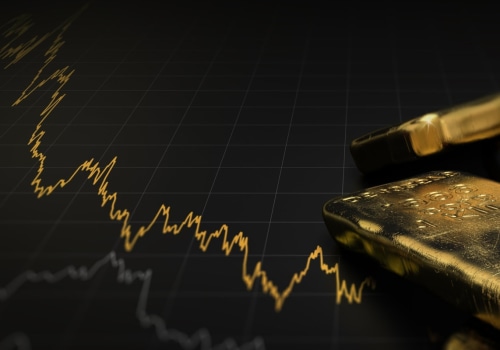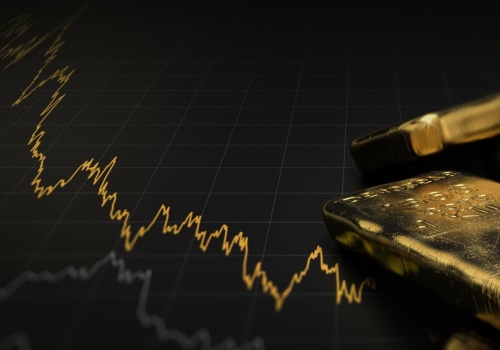The most direct way to own gold is to buy physical gold bars or coins, but these can be illiquid and must be stored securely. ETFs and mutual funds that track the price of gold are also popular, and if you have access to derivatives markets in your brokerage account, you can also use futures and gold options. Of all the forms of investing in gold, the riskiest is trading futures or options contracts, a form of speculative investment. Futures and options are derivatives, meaning that their value is based entirely on the price of an underlying asset.
Derivatives markets are efficient ways to gain exposure to gold and are generally the most profitable, as well as providing the highest degree of leverage. However, for the average investor, derivatives markets are inaccessible. Instead, a typical investor can gain exposure to gold through mutual funds that buy gold or by using gold ETFs that are traded as stocks on stock exchanges. The SPDR Gold Trust ETF (GLD) is popularly used; the trust's investment goal is for its shares to reflect the price performance of gold bars.
Investing in gold stocks, ETFs, or mutual fund is often the best way to expose yourself to gold in your portfolio. Gold exchange-traded funds (ETFs) and mutual funds are accounts that buy gold on behalf of an investor. Each of the shares that make up these funds represents a fixed amount of gold and can be bought and sold as shares. This is one of the best ways to invest in gold, as ETFs and mutual funds allow investors to work with gold, without having to deal with physical property costs (such as securities or gold insurance).
There are fees associated with buying and selling gold through ETFs or mutual funds, but they are often much lower compared to managing other assets. You can buy physical gold from retailers such as JM Bullion and APMEX, as well as from pawnshops and jewelry shops. A hybrid way to invest in gold is to buy shares in gold transmission companies. These companies do not mine gold, but they provide funding to mining companies in exchange for a portion of their gold production.
Gold ETNs can follow a gold index or move in the opposite direction to the value of gold, which is useful for the opposing investor. That said, many investors find this method very rewarding and one of the best ways to invest in gold. Whichever method you choose to invest in gold, know the tax implications and understand how the type of investment you prefer fluctuates in response to market conditions. If you decide that investing in physical gold is the right thing for you, here are a few things to keep in mind.
Both investors and financial institutions buy physical gold for these purposes and, more recently, exchange-traded funds that buy gold on behalf of investors. There are ways to invest in gold, whether you're looking for a hedge against the economy, increasing your retirement portfolio, or possibly earning short-term benefits. Gold is considered a “safe haven” asset because when the prices of other investments, such as stocks or real estate, fall sharply, gold does not lose its value, it can even gain value, as frightened investors rush to buy it. The investment information provided in this table is for general informational and educational purposes only and should not be construed as financial or investment advice.
Get ready to research different funds when considering ETFs or mutual funds for your gold investment. Investing in physical gold can be a challenge for investors more accustomed to trading stocks and bonds online. Investment decisions should be based on an assessment of your own personal financial situation, needs, risk tolerance and investment objectives. Before buying physical gold or investing in a gold-backed financial instrument, make sure it fits your financial and risk tolerance goals.
Determining which gold fund to invest in requires a little research so that you can choose a fund that meets your financial goals. The ETF is the only investment in gold you might not want in the long run, as commissions eat up profits, according to the ETF. Throughout history, few investments have rivaled gold in popularity as a hedge against almost any kind of problem, from inflation, economic turmoil or currency fluctuations, to war. .
.



